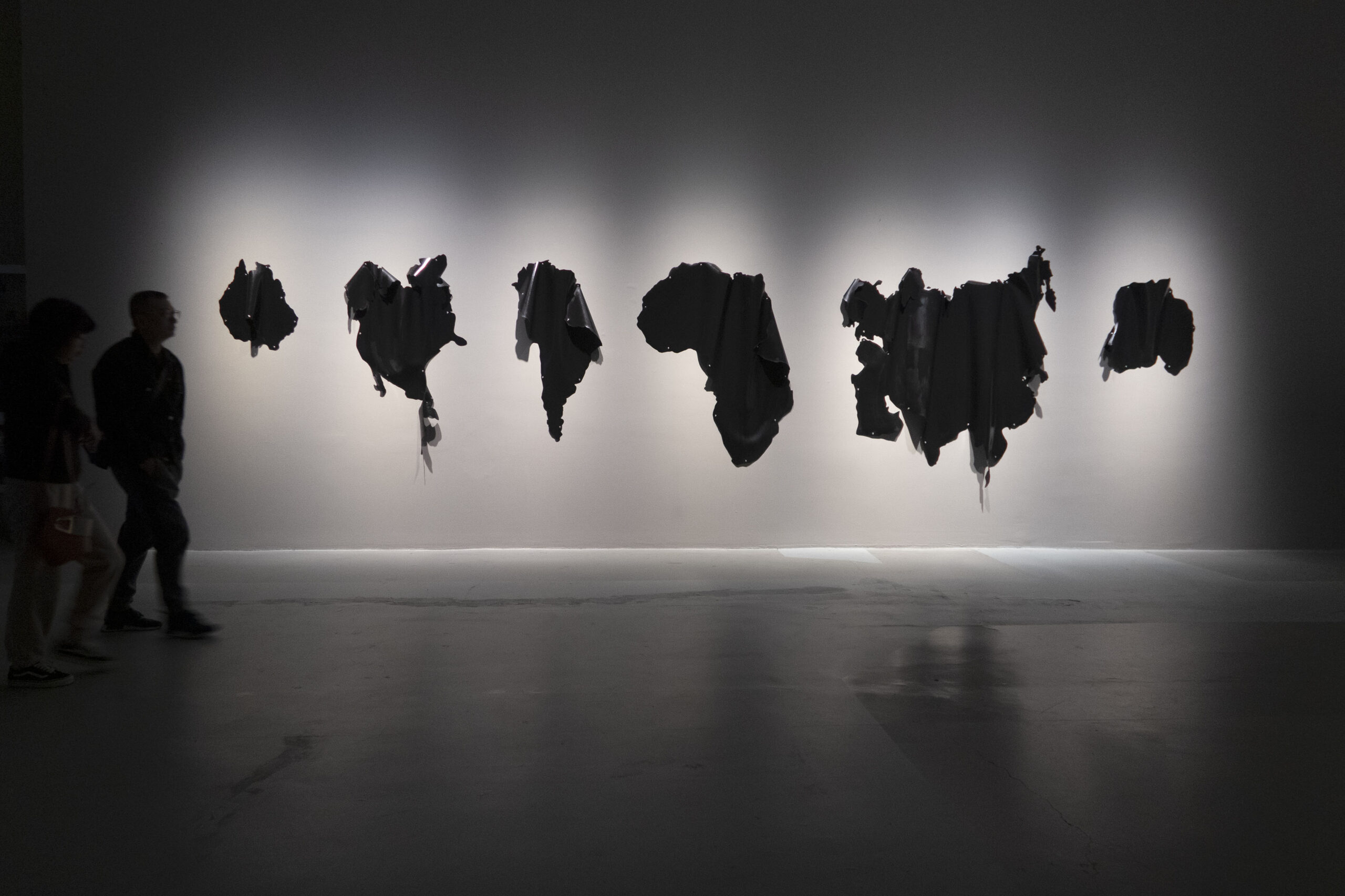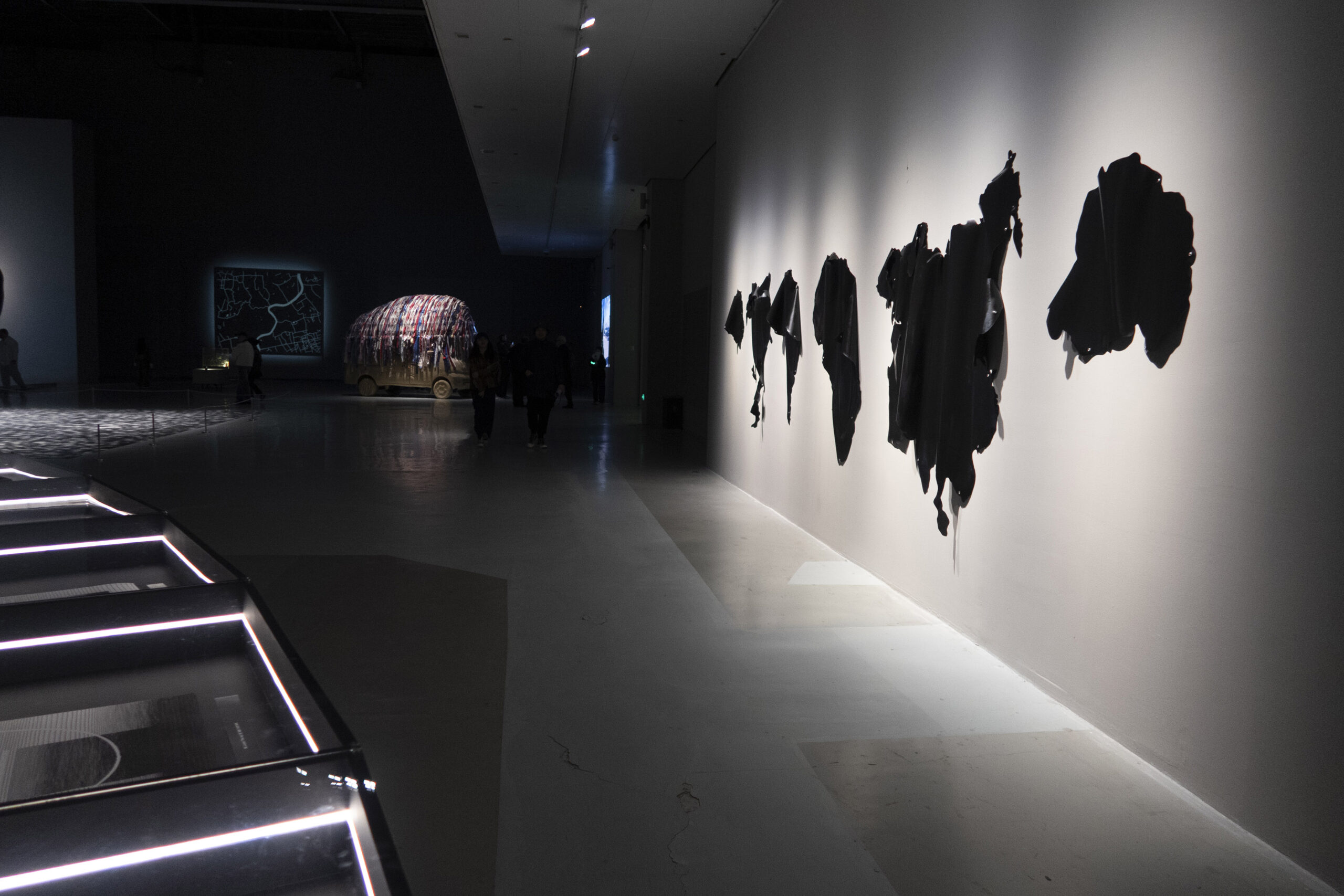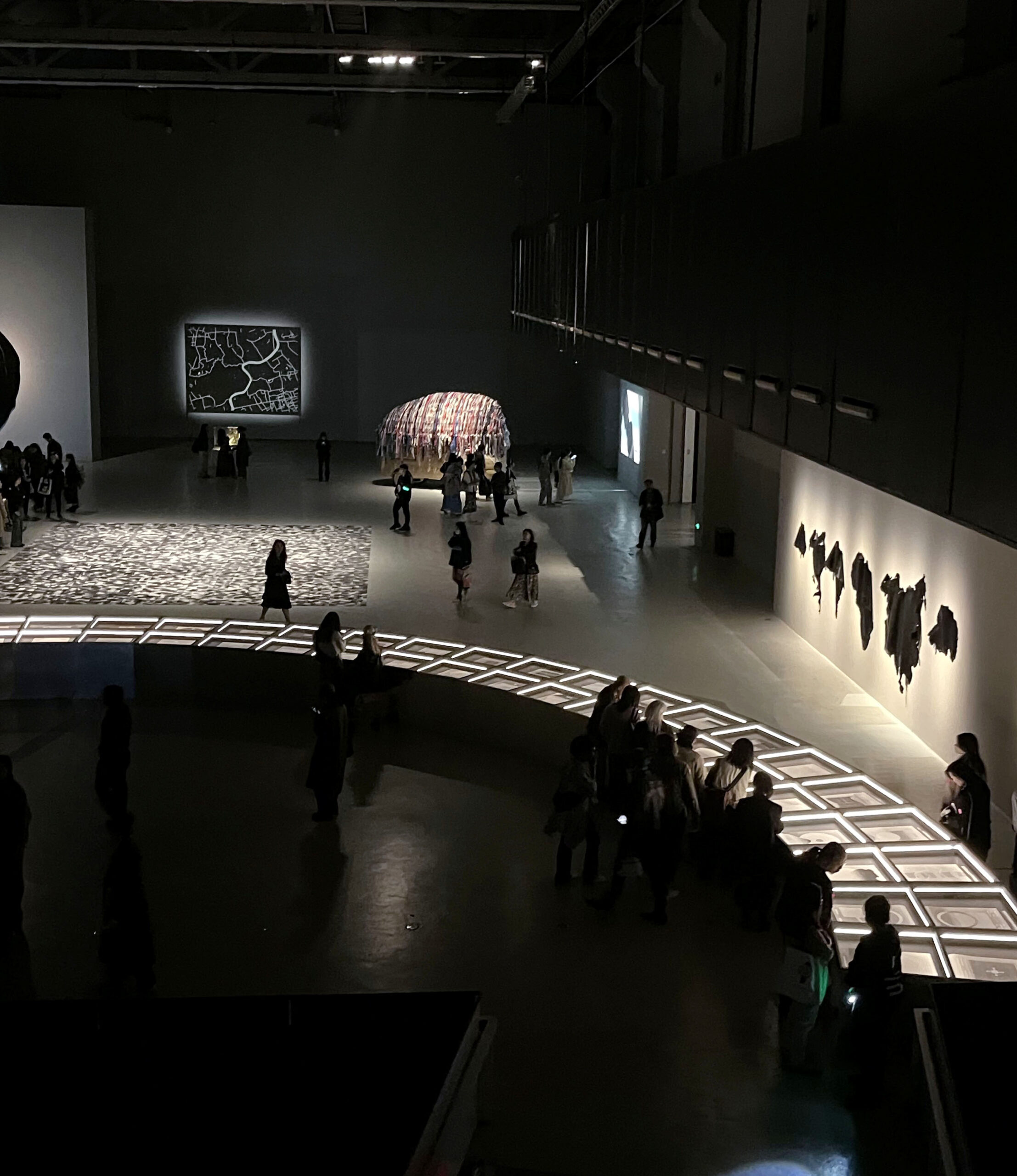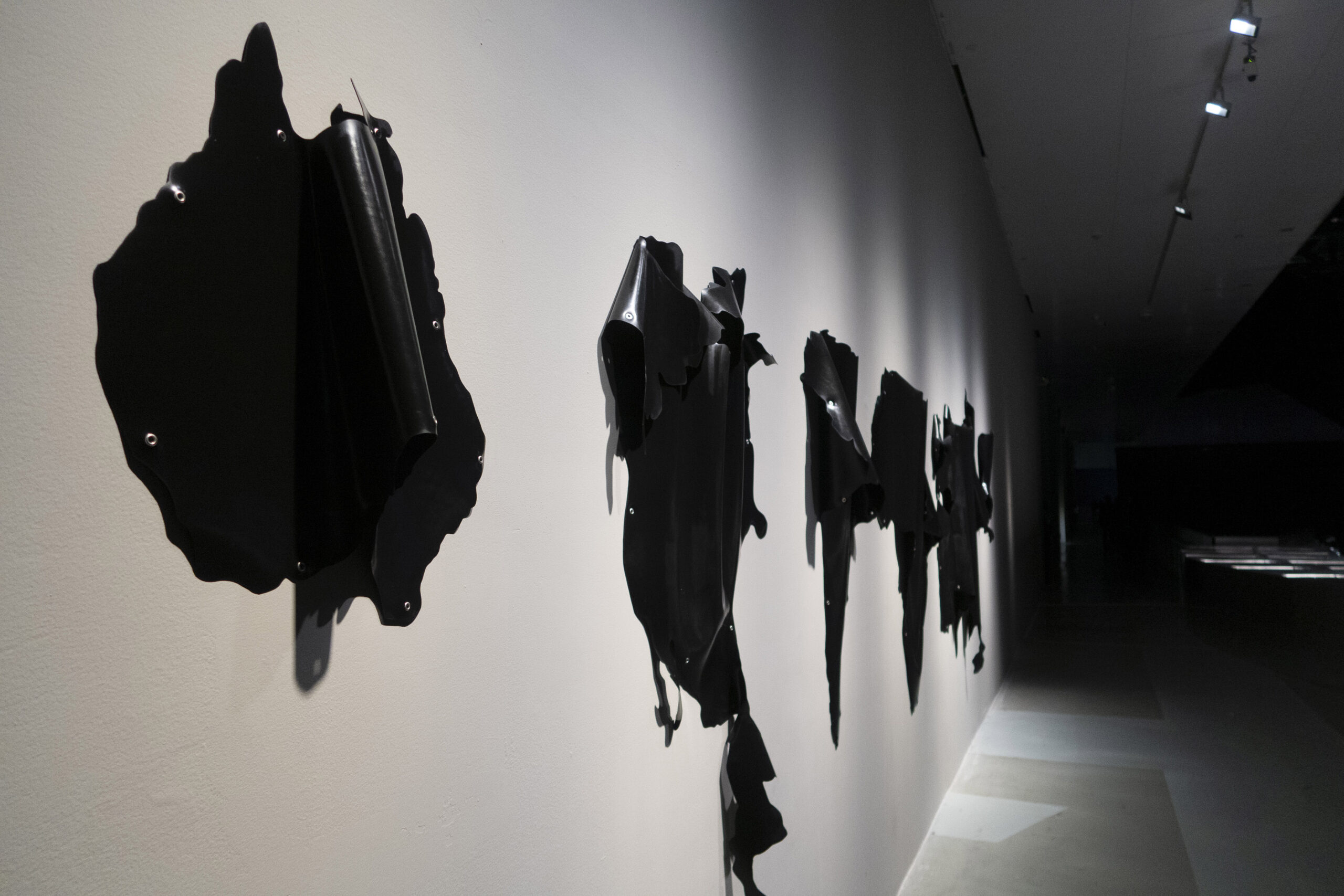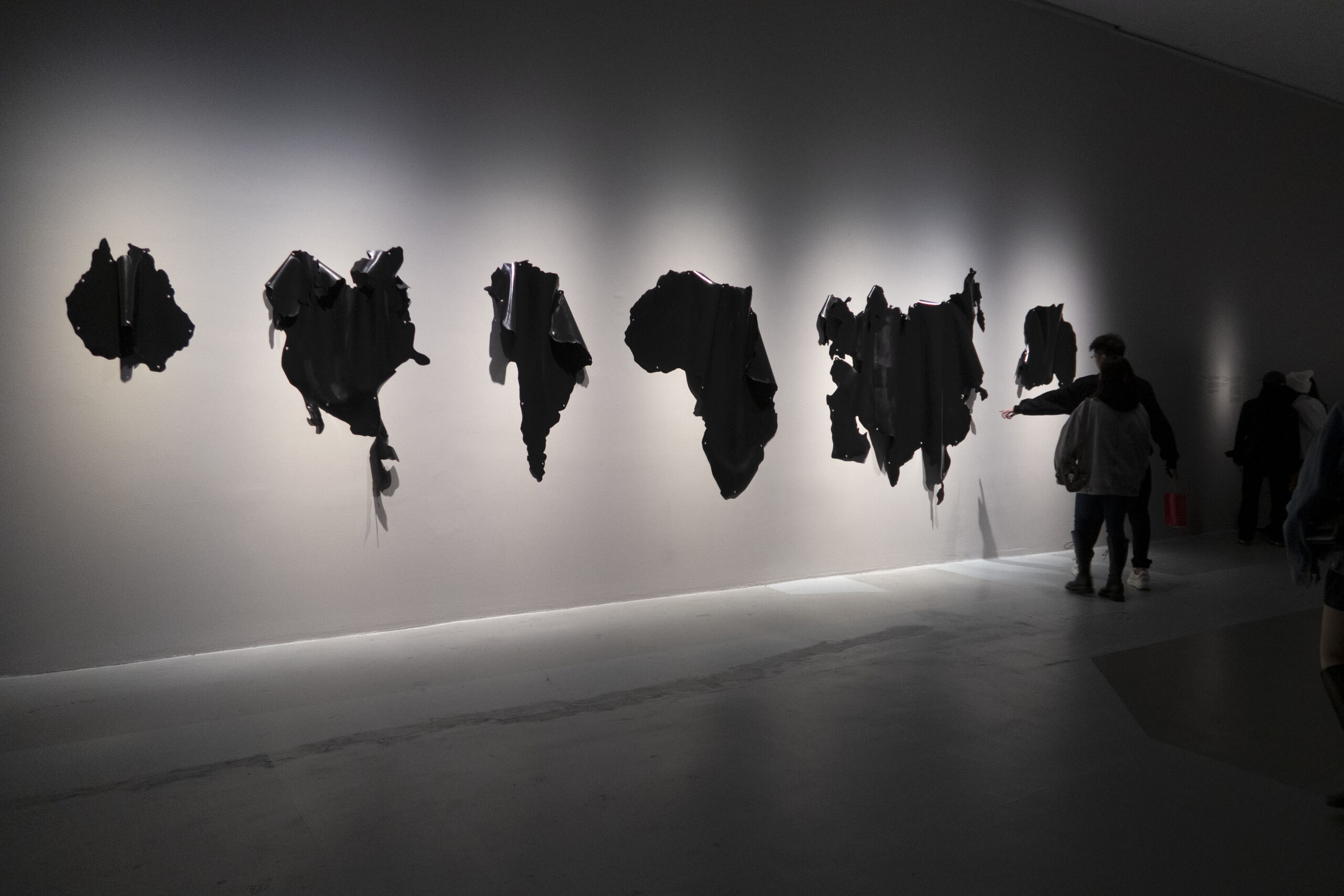Soft-Map (Fractions of Space)
In Soft-Map (Fractions of Space) drawings of continents cut out in flexible material are arranged in a linear way: suspended side by side in a geometric order that is at a distance from the representation used in world maps. It also refers to geographic space as a process that is in constant transformation.
•
Marina Camargo’s multi-disciplinary practice unsettles the relationship between the physical world and the means by which it is represented. In the Brazilian artist’s recent work this has manifested in drawings, installations, sculptures, and videos that extend the possibilities of map-making.
These experiments include using flexible or impermanent materials to produce maps that question the conventions of cartography. In the installation Soft-Map (Fractions of Space) (2020), for instance, cut-out rubber continents are suspended from the wall like flayed animal skins. The unpredictable folds and creases of these drooping land masses might seem to undermine not only the fixity of borders but the permanence of even the most fundamental geological formations.
Highlighting the difference between the sign and what is signified, Camargo’s soft and shifting maps illuminate the extent to which cartography is an act of translation that shapes our understanding of the world in which we live. [1]
•
The 14th Shanghai Biennale is divided into 9 parts (or 9 palaces), all conceived as developments or deepenings of the Cosmos Cinema theme. The artworks Distance within Space and Soft-Map (Fractions of Space) are exhibited in the section called Of time and space, in which representations of space and time are re-imagined through the work of 6 artists.
Space is socially produced, experimented, and understood. Our maps express ideological, philosophical, and psychological prejudices. The view from above of territorial maps assumes a godlike and timeless perspective. But concepts of above and below are meaningless in mapping the cosmos, where the time is inseparable from space. (…)
As there are as many night skies as positions from which the stars can be observed, so a number of the works here propose alternatives to the colonial logical of cartography as an instrument of domination. Recognizing that every map is conditioned by the space and time of its creation, they offer capacious, flexible, and contingent alternatives. (…) [2]
•
14th Shanghai Biennale: Cosmos Cinema
Chief curator: Anton Vidokle
Curators: Xiang Zairong, Hallie Ayres, Lukas Brasiskis
Publications Editor: Ben Eastham
Power Station of Art, Xangai (China)
From November 9, 2023 until March 31, 2024
•
[1] Text by Ben Eastham for the exhibition catalog.
[2] Excerpt from the introductory exhibition text.
